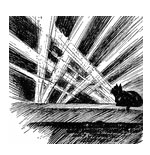
New Light on the Abortion Controversy
LETTER FROM ENGLAND
Considering the quantity of literature on abortion that has poured from the academic and popular press since 1973, when Roe v. Wade effectively legitimated abortion-on-demand in the U.S., one looks with amazement on any claim to offer a new solution to the prolife/pro-choice controversy. But just such a claim has just been presented — and by the immensely influential philosopher of law Ronald Dworkin, H.L.A. Hart’s successor in the chair of jurisprudence at Oxford.
Dworkin’s latest book, Life’s Dominion, came off the press on May 20, 1993, and is available both in England and in the U.S. (Knopf). Its inevitable impact warrants our closest attention to the author’s views, particularly since Dworkin, as a political liberal and American citizen, could someday be implementing his approach as a Supreme Court justice. As the London Times put it on April 27, 1993: “With a Democrat back in the White House, Oxford’s favourite lawyer is a hot tip to join the Supreme Court.”
The argument of Life’s Dominion was presented in summary by its author over a year ago, in a lecture, which I attended, at the University of London. On May 18, 1993, Dworkin participated in a public debate on the subject “How Much Is Life Worth?” at the London Institute of Education, and again offered a straightforward précis of his position. What is his viewpoint and why does he regard it as unique?
For Dworkin the abortion controversy is unnecessarily polarized and excessively confrontational. One side (prolife) is supposed to believe in the sanctity of life, while the other side (pro-choice) presumably does not. However, argues Dworkin, the pro-choice advocate does not say that abortion is a good: that it can properly be used to eliminate girl babies if one prefers to have a boy, or that it can without moral impunity be carried out simply because otherwise one might miss a desired vacation or theatrical performance. The pro-choicer, like the prolifer, sees life as sacred, but focuses not so much on the biological aspect of sanctity (the genetically human nature of the fetus) but on the personal dimension of life’s sanctity (the goals, plans, aspirations, and ideals of the pregnant woman). In the philosophy of pro-choice, the latter must be taken into account and not be legalistically frustrated; in the prolife perspective, it is the biological growth of the fetus that must not be frustrated. Both sides in the controversy believe in the unique value of human life; each is concentrating on a legitimate, but different, aspect of human worth.
You May Also Enjoy
The October 5, 1992, issue of The Times carried a troubling, but not atypical, news…
Answer: when he is a Messianic Jew. According to Israeli law, a Jew ceases to…
Readers of this column will perhaps recall that exactly a year ago I followed the…

